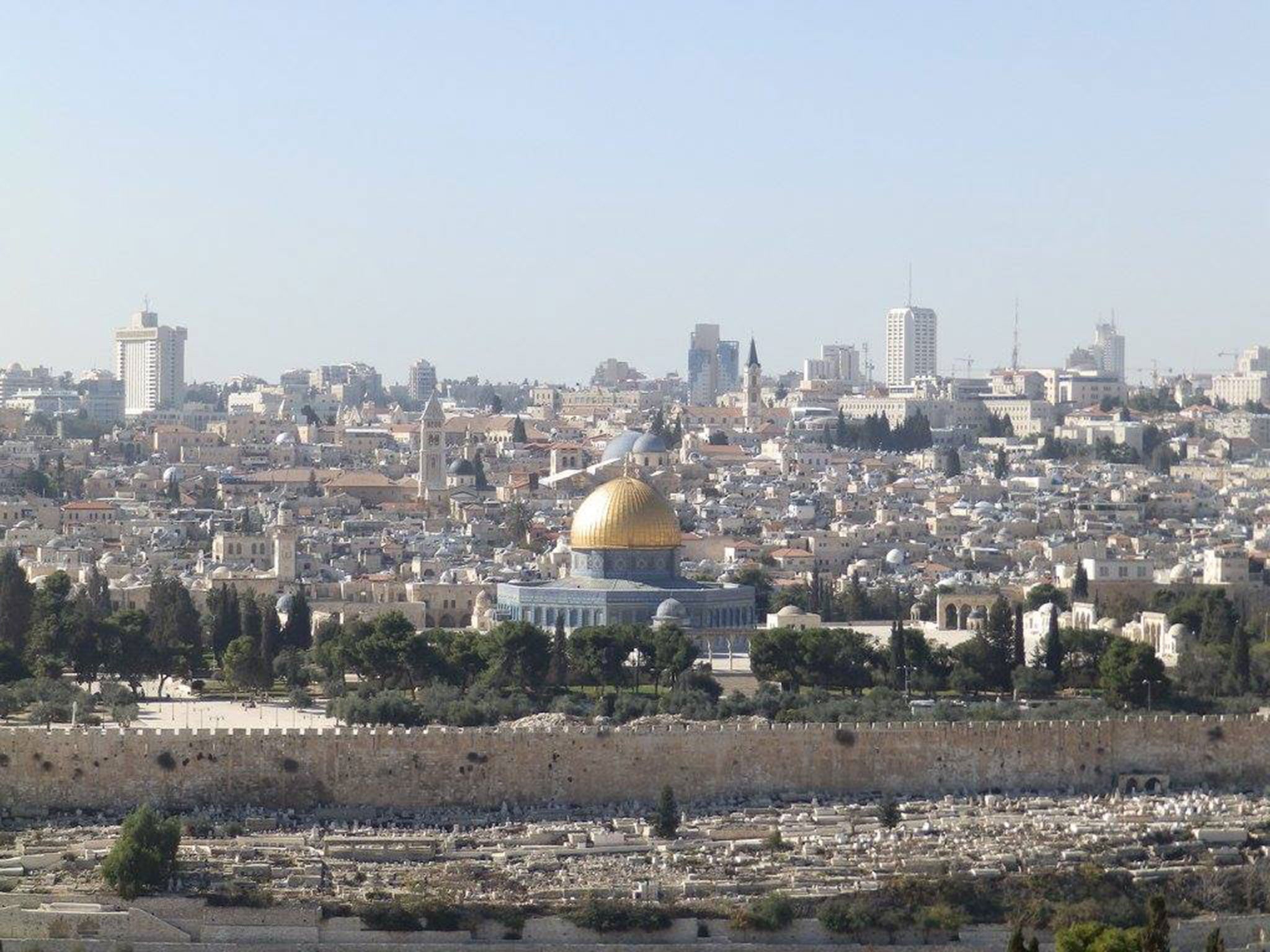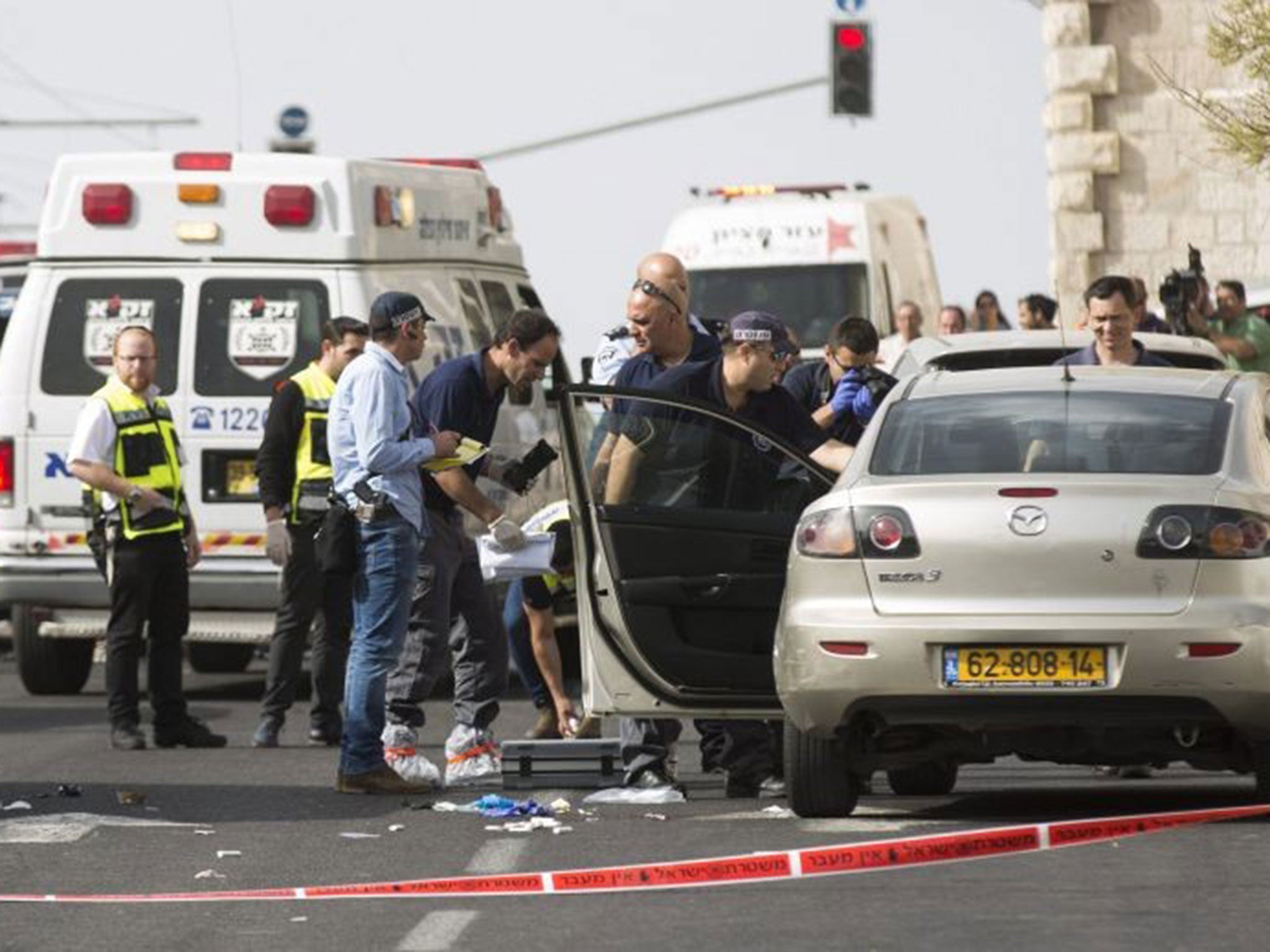Former Israeli cabinet minister proposes 'security barrier' that would shut 200,000 Palestinians out of Jerusalem
The proposal, which does not have Israeli government support, is being advocated by a campaign group

Your support helps us to tell the story
From reproductive rights to climate change to Big Tech, The Independent is on the ground when the story is developing. Whether it's investigating the financials of Elon Musk's pro-Trump PAC or producing our latest documentary, 'The A Word', which shines a light on the American women fighting for reproductive rights, we know how important it is to parse out the facts from the messaging.
At such a critical moment in US history, we need reporters on the ground. Your donation allows us to keep sending journalists to speak to both sides of the story.
The Independent is trusted by Americans across the entire political spectrum. And unlike many other quality news outlets, we choose not to lock Americans out of our reporting and analysis with paywalls. We believe quality journalism should be available to everyone, paid for by those who can afford it.
Your support makes all the difference.A former Israeli cabinet minister has called for the construction of a new separation wall around Palestinian neighbourhoods in East Jerusalem.
Haim Ramon, who left the Knesset in 2009, claimed the barrier was necessary for security reasons after a wave of violence that has left around 30 Israelis and 170 Palestinians dead in the past five months.
He is a member of the “Save Jewish Jerusalem” movement, which conducted a tour of the proposed division in East Jerusalem on Wednesday with several former senior defence officials and politicians.
“A survey this week showed half of the Israeli public wants to expel Arabs. It’s impossible to expel Arabs, but it’s possible to build a wall,” Mr Ramon, the former vice Prime Minister told Haaretz.
The proposal, which is not being considered by the Israeli government, would reportedly result in around 200,000 Palestinians being fenced off from East Jerusalem and denied residence status in Israel.
They would hypothetically have to apply for work permits to work in the city, although Palestinians living in certain areas of the Old City and its surrounds would be allowed to remain.
Israel’s Yedioth Ahronoth newspaper reported that although the plan’s implementation is highly unlikely, it would change the demographics of Jerusalem to make around 80 per cent of residents Jewish, compared to the current 60 per cent.

“A substantial per cent of the terror attacks in the current escalation came from East Jerusalem,“ Mr Ramon said, describing the controversial plan as a “lesser evil” comparable to the West Bank barrier and Gaza fence.
Security checkpoints have been sporadically introduced in the city but any move by the Israeli government to permanently close off Palestinian districts is considered highly unlikely in the face of domestic and international opposition.
Saeb Erekat, the Secretary General of the Palestine Liberation Organisation (PLO), said the plan would separate people from their families, schools, jobs and religious sites, as well as further damaging fragile hopes of a two-state solution.
Palestinians claim East Jerusalem, which is considered annexed Palestinian territory by the United Nations, as their capital, while a 1980 Israeli law declared a “complete and united” Jerusalem as the capital of Israel.
Tensions remain high in Israel and the West Bank following one of the bloodiest days seen in months on Tuesday, when three attacks saw an American student killed and 13 others injured.
Israeli authorities have accused Palestinian politicians of inciting the wave of attacks, which started in October, while Palestinians have claimed they are a result of long-running religious and territorial disputes.
Some critics have also accused Israeli security forces of using excessive force responding to almost daily stabbings, shootings and car rammings.
Most of the around 170 Palestinians killed by security forces were said to be carrying out or attempting attacks at the time, although others died in clashes and protests, and the circumstances of many deaths have been disputed.
Additional reporting by AP